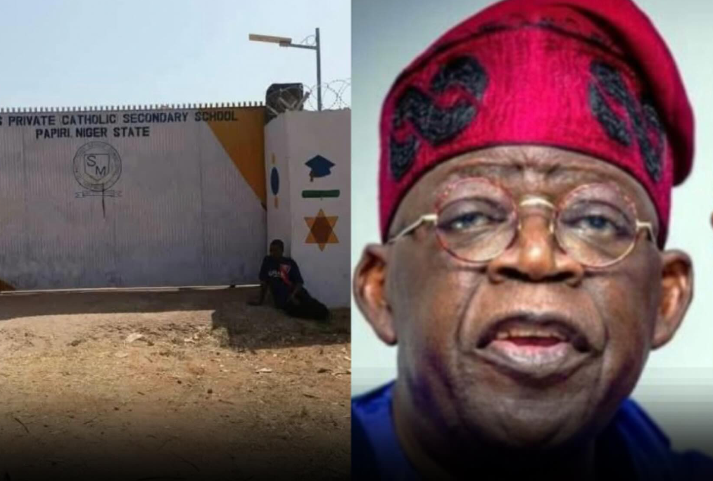
“I Felt Led to Gift Her”: Iyanya Sparks Reactions After Donating N500K to Nurse Who Defied Strike

In a moment that has ignited mixed emotions across the Nigerian social media space, popular Nigerian singer Iyanya has doubled down on his decision to gift a striking nurse the sum of N500,000, insisting it was a personal conviction and nobody’s business. The singer, known for his chart-topping hits and bold online presence, made headlines after he declared his intent to financially reward a nurse who chose to work despite the nationwide strike action embarked upon by health workers. His decision has triggered both applause and outrage, but the singer remains unshaken, stating plainly, “It’s my money and I felt led to gift her.”
The saga began when Iyanya took to X (formerly Twitter) to praise the nurse, identified as Mrs. Guobadia, for what he described as dedication and selflessness. While some Nigerians hailed the act as a generous gesture and an encouragement to frontline workers, others saw it as an endorsement of strike-breaking behavior at a time when the Nigerian healthcare system is struggling with deep-rooted issues and the rights of workers are under intense scrutiny.
Despite the backlash, Iyanya remained resolute. “I found her,” he posted triumphantly, accompanied by a picture of the nurse. “Her name is Mrs. Guobadia and she has told me her own side of the story. I’ll give her the money. It’s my money and I felt led to gift her. I don’t care who agrees with me or not. Do have a great day.” That singular declaration sent social media into a frenzy, with the name “Iyanya” trending for hours.
For many, the issue was not just about the singer’s money or the nurse’s choice, but about what such an action symbolized in the larger context of labor rights, civil disobedience, and societal values. While some users praised the gesture as kindness that should be replicated by other celebrities, others accused Iyanya of undermining a legitimate strike aimed at forcing government accountability and reform in the health sector.
“While the health workers are demanding better pay and working conditions, you’re celebrating the one who defied their unified struggle. That’s not generosity, that’s sabotage,” one critic wrote.
But defenders of Iyanya’s action argue that every situation has its context. According to some accounts, Mrs. Guobadia reportedly showed up to work not out of disregard for the strike, but out of a sense of personal duty to patients in critical condition who needed care. Supporters have insisted that her action reflects the compassion that’s often missing in public service and deserved to be rewarded. For them, Iyanya’s gift was not just money, but a recognition of the humanity that keeps the system afloat even when the system itself fails.
“Iyanya has done what many of our leaders refuse to do: reward sacrifice. If one nurse stayed behind to help the sick while others went home, then she’s a hero,” a fan commented.
The uproar has also reignited discussions about the place of celebrities in shaping public narratives and moral decisions. With a single tweet, Iyanya has managed to put the spotlight on the long-standing tension between individual conscience and collective action. While no one questions his right to spend his money as he wishes, many believe public figures must tread carefully when their actions can be interpreted as political or anti-labor.
Interestingly, some labor union members have also weighed in anonymously, describing the incident as “unfortunate but understandable,” adding that situations like this are not new. In fact, several hospitals across Nigeria have often had some level of attendance during strikes, largely from staff who are either unaware of the strike directives, too committed to leave patients unattended, or under pressure from hospital management. The presence of these workers during strikes is often met with both admiration and condemnation.
Iyanya’s move comes at a time when tensions are high in the Nigerian labor space, especially among healthcare professionals who have been clamoring for better pay, improved infrastructure, and consistent government policy on healthcare delivery. Many hospitals have been running skeletal services or completely shut down, with patients left stranded and lives potentially at risk.
But this nurse chose to go in. And Iyanya chose to notice. And now the country is talking.
Whether Iyanya’s gesture becomes a source of division or inspiration, one thing is clear: it has drawn needed attention to the dilemmas that public servants often face, especially when systemic issues collide with personal values. Mrs. Guobadia’s story, like that of many others who show up quietly and do their work, may have remained unknown if not for this incident. That, in itself, is a win — even if unintentional.
As the debate continues, Iyanya has not walked back his decision, nor has he issued any further comment. The N500,000 gift is already being processed, and the singer has made it clear that public opinion will not change his mind. He believes in what he’s doing, and that’s enough for him.
“I don’t care who agrees with me or not,” he stated boldly, a sentence that now echoes through the corridors of Nigerian Twitter and beyond.
In the end, Iyanya has reminded everyone that generosity — like protest — is personal. It may not always be popular, and it may not always be politically correct, but it is always a choice. And this time, the singer chose to act not as a pop star, but as a man following his heart. Whether history agrees with him or not remains to be seen.


